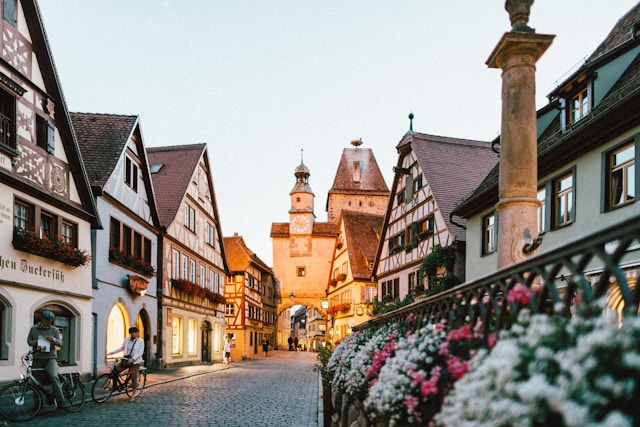Exploring a new city can be one of the most exciting parts of traveling. From navigating unfamiliar streets to discovering hidden gems, there’s an undeniable thrill in venturing into the unknown. However, with this excitement comes the need for caution, especially in cities where tourists may not be familiar with the local layout, customs, or safety risks. Whether you’re a seasoned traveler or exploring a new city for the first time, understanding how to stay safe is essential.
Research Your Destination Before You Arrive
One of the best ways to stay safe in an unfamiliar city is to do your homework before you get there. Thorough research can save you from a lot of unnecessary trouble.
First, learn about local safety concerns. Look into the city’s crime rates, read about safe neighborhoods, and familiarize yourself with areas that locals recommend avoiding, especially at night. This is particularly important in large cities where different districts can vary significantly in terms of safety.
Another key to staying safe is to familiarize yourself with local customs and cultural norms. For example, certain gestures or behaviors that seem harmless in one country might be considered offensive in another. Being aware of these differences not only helps you avoid drawing unwanted attention but also allows you to better blend in with the local culture, making you less of a target for potential scammers.
Finally, make sure to save important emergency contacts such as local police numbers, hospital contacts, and your country’s embassy or consulate information. This is critical if you find yourself in a situation where you need help fast.

Avoiding Tourist Traps
Tourist traps are often overpriced, overcrowded, and, unfortunately, hotspots for pickpockets or scams. To avoid falling into these traps, you should be selective about where you spend your time.
First, choose your sightseeing spots wisely. While certain tourist attractions are undoubtedly worth visiting, some might be overhyped and offer little value for the time and money invested. Reading reviews, checking out travel blogs, or asking locals for advice can help you avoid areas that are known more for ripping off tourists than for their actual significance.
In addition, stay away from overly crowded spots when possible. Busy areas like public squares, markets, or transportation hubs are prime locations for pickpockets. By keeping your distance from large crowds, you reduce the chance of becoming an easy target.
One of the best ways to have an authentic and safer experience is to look for local alternatives to popular tourist attractions. Seek out hidden gems, local markets, or neighborhood cafes that aren’t heavily advertised. These places tend to be less crowded, safer, and more reflective of the city’s true character.
Being Aware of Local Scams
Unfortunately, travelers are often prime targets for local scams, which can range from mild inconveniences to situations that leave you significantly out of pocket. Being aware of common scams can save you time, money, and stress.
Know the common scams in the city you’re visiting. These can include taxi drivers taking unnecessarily long routes to overcharge you, street vendors trying to sell overpriced or fake goods, or individuals posing as friendly locals offering unsolicited help or friendship. In some areas, scammers will hand you a “free” item, such as a bracelet or flower, and then demand payment once you accept it.
To avoid falling victim, trust your instincts. If a deal seems too good to be true, it probably is. Politely decline offers that make you uncomfortable or seem suspicious. It’s also a good idea to watch your belongings closely, especially in busy areas. Carry your bags in front of you, use secure zippers, and consider investing in an anti-theft backpack or money belt to keep your valuables safe.

Using Public Transportation Safely
Public transportation is often the best way to get around an unfamiliar city, but it can also come with risks. To make sure your journey is both safe and efficient, it’s important to plan ahead.
Plan your routes in advance to avoid confusion. Before you leave your accommodation, figure out which trains, buses, or trams you’ll need to take and where you’ll need to get off. This prevents you from fumbling around with maps or smartphones in public, which can make you an easy target for theft. People have had their phones snatched from their hands while looking down trying to figure out directions.
Try to avoid public transportation during off-peak hours, especially late at night. Fewer people around can make you more vulnerable to theft or other safety concerns, so traveling during busier times is generally a safer bet.
While on public transportation, stay alert and aware of your surroundings. Keep an eye on your belongings, and don’t be too distracted by your phone or music, which can make you less aware of potential risks around you.
Following Local Safety Rules and Signs
In many cities, one of the most overlooked safety hazards for travelers is traffic. Respect local traffic signals and pedestrian rules, and don’t jaywalk. Unfamiliar traffic patterns, such as vehicles driving on the opposite side of the road, can make it more dangerous to cross streets.
Additionally, many cities have designated bike lanes, which can be easy to overlook if you’re not used to them. Walking in these lanes can result in a collision with a cyclist, so always stay on the designated pedestrian paths.
Be especially careful when crossing intersections, as vehicles may turn unexpectedly. Even if you’re in a crosswalk, it’s a good habit to look both ways before stepping into the street. The last thing anyone wants while on vacation is to end up in the hospital with injuries after accidentally being hit by a car or cyclist.
Staying Connected for Safety
In today’s digital age, staying connected can greatly enhance your safety when traveling. Share your itinerary with someone back home, so they can keep track of your whereabouts and help in case of an emergency.
Consider using a local SIM card if you are in a different country or portable Wi-Fi to ensure you have internet access wherever you go. This allows you to look up maps, call for help, or stay in touch with loved ones.
There are also various safety apps available that can be incredibly useful. Apps like Google Maps, WhatsApp (for sharing your location), and emergency alert apps can provide real-time safety information, navigation, and ways to communicate during emergencies.

